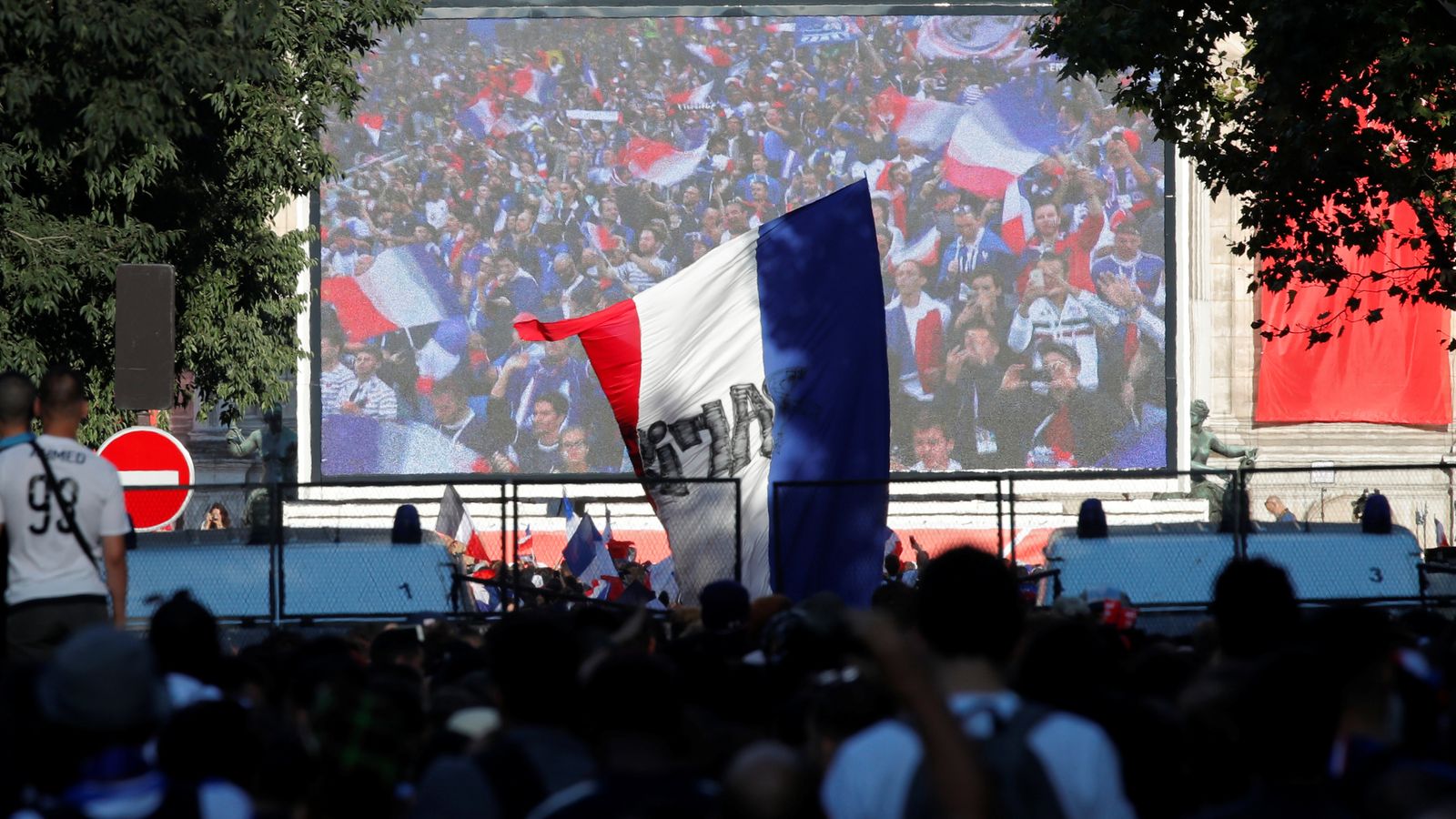Paris will not broadcast World Cup matches on giant screens in public fan zones amid concerns over rights violations of migrant workers and the environmental impact of the tournament in Qatar.
It follows similar moves by other French cities, despite the country going in as the defending champion.
Pierre Rabadan, deputy mayor of Paris in charge of sports, said the decision is due to “the conditions of the organisation of this World Cup, both on the environmental and social level”.
He said in an interview with France Blue Paris that “air-conditioned stadiums” and the “conditions in which these facilities have been built are to be questioned”.
Mr Rabadan stressed that Paris is not boycotting the tournament, but explained that Qatar’s “model of staging big events goes against what (Paris, the host of the 2024 Olympics) wants to organise”.
The move comes despite the city’s football club, Paris Saint-Germain, being owned by Qatar Sports Investments.
A growing number of French cities are refusing to erect screens to broadcast World Cup matches to protest Qatar’s human rights record.
World Cup COVID rules announced as Denmark unveil black kit in protest over Qatar human rights
Qatar ‘conscripting civilians and summoning diplomats from abroad’ to bolster World Cup security
England and Wales reflect football’s delicate approach at the World Cup over rights violations in Qatar
The mayor of Strasbourg, the seat of the European Parliament and the European Court of Human Rights, cited allegations of human rights abuses and exploitation of migrant workers in Qatar as the reason for cancelling public broadcasts of the World Cup.
“It’s impossible for us to ignore the many warnings of abuse and exploitation of migrant workers by non-governmental organisations,” Jeanne Barseghian said in a statement.
“We cannot condone these abuses, we cannot turn a blind eye when human rights are violated.”
Arnaud Deslandes, a deputy mayor of Lille, said that by cancelling public viewing of matches, the northern city wanted to send a message to FIFA about the irreparable damage of the Qatar tournament to the environment.
“We want to show FIFA that money is not everything,” Deslandes told The Associated Press in an interview.
Read more:
England and Wales reflect football’s delicate approach over rights violations in Qatar
Just how much Qatar 2022 might have cost
As for residents’ reactions to the city’s decision, he added: “I have yet to meet a person in Lille who was disappointed by our decision.”
The gas-rich emirate has been criticised for its treatment of migrant workers, mostly from south Asia, who were needed to build the stadiums, metro lines, roads and hotels.
However, Qatar has denied these accusations and has repeatedly rejected allegations that the safety and health of 30,000 workers who built the World Cup infrastructure have been jeopardised.








